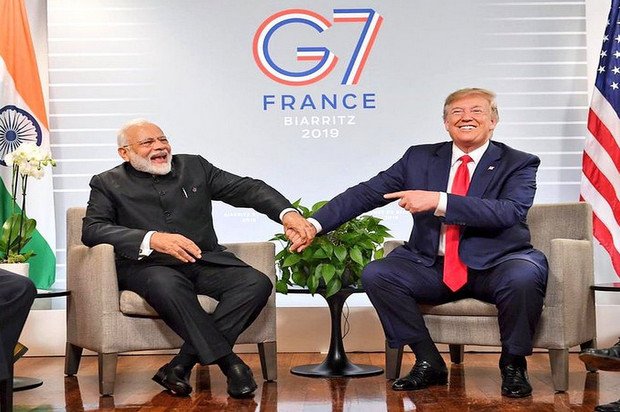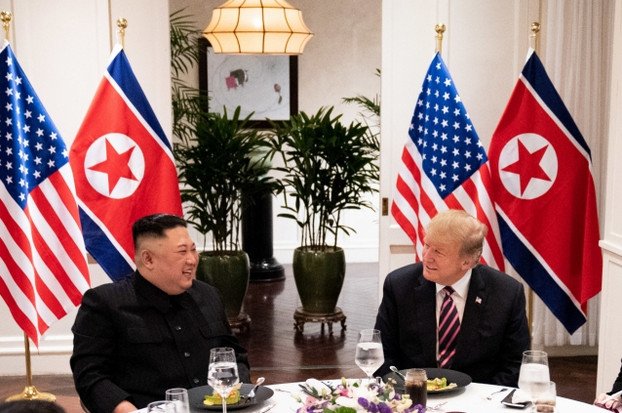November 8, 2024
MANILA – America has made its choice. Donald Trump is heading back to the White House. In Tuesday’s election, Mr. Trump scored a quick and decisive victory against Democratic candidate and incumbent US Vice President Kamala Harris. According to a CNN report, he is also likely to become the first Republican since 2004 to win the popular vote and the Electoral College.
During his first term, Mr. Trump was known to have broken many of the longstanding but unspoken rules of US foreign policy. Two most obvious ones were the trade war with China in 2018 and his outreach to Asia’s two “most diplomatically isolated leaders”: North Korea’s Kim Jong Un and Taiwan’s then-President Tsai Ing-wen, Al Jazeera reported.
While congratulations have been pouring in from many world leaders, including those from Asia, many are also mulling over the implications of Trump’s political comeback, described by many as “stunning,” on their economies. Here’s an overview:
China
Perhaps the most contentious relationship the US has had in Asia has been with China. With the two countries engaged in a fierce rivalry, speculation is rife over how Mr. Trump will engage Beijing in his second term.
China Daily sees Mr. Trump’s new presidential term as an opportunity to strengthen dialogue and communication between the two countries. The two, being the world’s largest economies, need to better manage their differences on issues such as Taiwan, trade, and the South China Sea, it noted. A pragmatic approach to bilateral relations—which it describes as the “world’s most important,” is recommended by the title in its editorial.
China might frantically try to establish back-channels to China-friendly Trump allies like Elon Musk, noted Ian Bremmer, president and founder of Eurasia Group and GZERO Media, during a post-election online briefing with Asia-Pacific media organisations.
“China will be hoping they can facilitate a less confrontational relationship (but) will Trump support that, or will his hawks get the upper hand and push for an even more confrontational approach” is to be seen, he said. Beijing will move cautiously and slowly in this environment, he added.
The Jakarta Post of Indonesia feared more “economic troubles” given Trump’s threat to impose tariffs of 60 percent or higher on Chinese imports and of 10 to 20 percent on all other foreign goods. With Chinese manufacturers shifting their operations to countries in Southeast Asia to circumvent US tariffs, it is likely that Trump could also go after them, the editorial noted.
Japan
As close allies, Japan Prime Minister Shigeru Ishiba expressed his desire to realise a summit meeting with the new U.S. president, according to The Yomiuri Shimbun. “I hope to work closely with President-elect Trump to take the U.S.-Japan alliance and relationship to new heights,” he was quoted as saying in the article.
“The Japan-U.S. alliance is the foundation of our diplomatic and national security policies,” Chief Cabinet Secretary Yoshimasa Hayashi said at a press conference on Nov. 6, according to another report in The Yomiuri Shimbun. “To further strengthen the alliance, we want to build a firmly trusting and cooperative relationship with the next [U.S.] administration,” he added.
Current close relations aside, Japan is not spared from having to worry about Mr. Trump’s affinity for transactionalism. These are described in an article in The Japan Times as “demands of hefty payments in return for maintaining U.S. defence commitments.”
There’s also the issue of Tokyo remaining mired in political turmoil following the ruling bloc’s decisive loss of its majority in a general election last month under new PM Ishiba, the article added. Compounding matters, it continued, is Trump’s “long history of denigrating the U.S.-Japan alliance.”
Another question is whether or not Mr. Ishiba will be able to repeat the late former Prime Minister Shinzo Abe’s ability to leverage his personal relationship with Mr. Trump in order to uphold Japanese interests while maintaining bilateral ties.
There are challenges ahead, the article mentioned, but there are also plenty of areas where the two leaders can find common ground, especially in their views of China.
India
As Indian Prime Minister Narendra Modi sent his congratulations to Mr. Trump, whom he considers his “friend,” he also expressed confidence that the ties between India and the US will grow from “strength to strength under Trump’s presidency,” The Statesman reported.
This optimism comes from the “personal chemistry” established between the two leaders during Mr. Trump’s first term in office. They aligned closely on defence and security, and took a hard stance against terrorism, the report continued.

File photo of Indian Prime Minister Narendra Modi (left) and then US President Donald Trump. PHOTO: @MEAIndia/THE STATESMAN
The article also added that India and the US have been collaborating intensively to counter China’s influence in the Indo-Pacific region, enabling New Delhi to play its role in the “Quad alliance” with the US, Japan, and Australia. Moreover, Mr. Trump has already made public commitments to strengthen ties with India.
In terms of tariffs, a report on the South China Morning Post stated that India is expected to bear less of the brunt of looming import tariffs under a second Trump presidency due to “its regional strategic significance to Washington.” But, the article noted that “New Delhi’s diplomatic balancing act with the West and other powers such as China may be sorely tested.”
Philippines
Considered the United States’ oldest ally in the Indo-Pacific, with an alliance that dates back to 1951, per the official website of The White House, the Philippines expects its ties to its former colonizer to remain “unshakeable,” using the words of President Ferdinand Marcos Jr, in a report on the Philippine Daily Inquirer. In his congratulatory message last Nov. 6, Mr. Marcos expressed eagerness to work with Trump on a variety of mutual interests, the Inquirer reported.
Analysts expect Mr. Trump to sustain US-Philippines ties to counter China’s growing influence in the Indo-Pacific, another report in South China Morning Post, said. In the article, Chris Gardiner, CEO of the Institute for Regional Security in Canberra, said that China would be Trump’s “key priority given its clout as the biggest rival of the US.” In response, China could test US resolve over the West Philippine Sea and around Taiwan, said Gardiner.
“Trump will not want to be seen as weak and will likely meet those challenges,” Gardiner added. However, he warned US allies to consider becoming more self-reliant in defence as “Trump ultimately may be unwilling to go to war on their behalf.”
North Korea
During his first term, Mr. Trump hosted the first-ever summit between US and North Korean leaders with Kim Jong-un in Singapore in 2018. Another summit followed in Hanoi, Vietnam the next year. Both summits, however, failed to produce a deal to curb North Korea’s nuclear program.

File photo of then-US President Donald Trump and North Korean leader Kim Jong-un at a social dinner on Feb. 27, 2019, at the Sofitel Legend Metropole hotel in Hanoi, for their second summit meeting. PHOTO: WHITE HOUSE/THE KOREA HERALD
South Korean news agency Yonhap reported that the North Korean leader may seek another summit with Mr. Trump. Chances for a deal, however, are seen as “slimmer,” with experts saying this is due to Mr. Kim’s pursuit of nuclear state status.
In fact, a day before the US elections last Nov. 5, it was reported in The Korea Herald, that North Korea launched several short-range ballistic missiles into the sea east of the Korean Peninsula, according to the South Korean Joint Chiefs of Staff. This is apparently in response to the US flying B-1B bomber in a trilateral air drill with South Korea and Japan near the peninsula, which was slammed by Kim’s sister Kim Yo-jong on Tuesday, the article added.
Malaysia
Experts said Malaysia “will stand to both gain and lose” under a Trump presidency, per a report in The Star. With the peninsula’s increasing sentiment to move away from the use of the US dollar’s shadow due to US-China competition, economist Prof. Emeritus Dr Barjoyai Bardai said Malaysia will be affected by Mr. Trump’s trade policies. She added, however, that “in the longer run,” it could be that the US tightening its trade rules will promote greater integration between Malaysia and the Global South.
Meanwhile, Malaysia being a ‘partner country’ of BRICS, which advocates de-dollarisation, would make it a ‘target,’ according to International Islamic University Malaysia political analyst Dr. Tunku Mohar Tunku Mohd Mokhtar, in the The Star report.
“Malaysia says that we are ‘neutral’ (actually non-aligned) but BRICS is not a trade bloc. It is in my view a rival to the G7 Summit,” said Dr. Tunku Mohar.
This was, however, refuted by Prof. Barjoyai, who said Malaysia’s move to join BRICS was to assert its neutrality and the pursuit of a more ‘progressive economy.’
A ‘bumpy’ ride ahead
As he did in his first term, Mr. Trump is expected to get some foreign policy wins just by virtue of being the president of the most powerful country in the world, Mr. Bremmer said. “But the potential for things to go sideways is much greater in this environment.”
“Geopolitics are in for a volatile and unpredictable ride, and the United States is about to become the epicenter of it,” he added. “So take a deep breath and strap in, folks. It’s going to get bumpy.”


